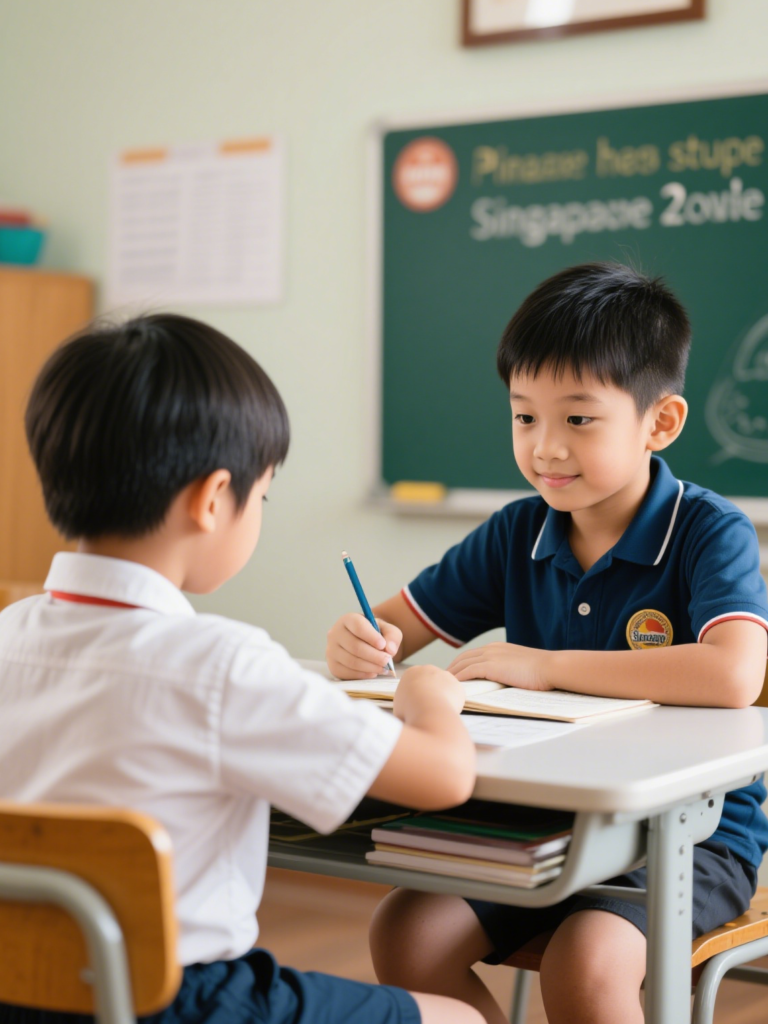In Singapore, a country with a blend of diverse cultures, Chinese tuition in primary schools is very important. And Chinese oral ability is an indispensable skill for children in learning and life. For Singaporean primary school students who participate in Chinese tuition, mastering effective oral practice methods can help them make great strides in learning Chinese.
The Chinese tuition environment in Singaporean primary schools is unique. In the family, due to the widespread use of English, many children lack the opportunity to communicate in daily Chinese. In school, although Chinese courses are offered, the class time is limited, and it is necessary to take into account multiple aspects of teaching such as reading and writing, leaving insufficient time for oral practice. In the social environment, English dominates, multicultural languages are intertwined, and the use of Chinese is limited. As a result, children face many challenges in Chinese oral practice.

Improving Chinese oral ability is crucial for primary school students in Singapore. From an academic perspective, oral scores account for a considerable proportion of the Chinese course evaluation in Singaporean primary schools, and good oral skills can directly improve academic performance. In terms of social aspects, speaking fluent Chinese can make children more confident when communicating with classmates, friends and elders, helping them better integrate into the group and expand their social circles. More importantly, Chinese carries a profound Chinese culture. Mastering spoken language can help children inherit and understand Chinese culture and enhance their sense of national identity.
So, what are some effective oral practice methods in primary school Chinese tutoring? Creating real-life scenarios is a good way. Family scene simulation allows children to set up a “Chinese Day” at home. The whole family will only communicate in Chinese on that day. They can also role-play, such as simulating shopping and visiting, to train children’s Chinese expression in daily family life. Campus scene reproduction is also very practical. In the tutoring class, the teacher organizes students to simulate common campus scenarios such as communication during class breaks and borrowing books from the library, so that children can closely connect classroom knowledge with campus life and improve their proficiency in oral language. Social scene experience should not be ignored either. Take your children to the vegetable market to buy vegetables and bargain with the stall owner in Chinese; or go to the museum as a little guide to introduce exhibits in Chinese to enrich children’s oral expression experience in different social scenes.

The use of multimedia resources can also contribute to oral practice. Chinese nursery rhymes and animations, such as “Little Bunny Good Boy” and “Peppa Pig” Chinese animation version, attract children with their cheerful rhythm and cute pictures. Children can easily improve their listening and oral skills by humming and imitating the dialogues of the characters after watching. Chinese film and television works, such as “Pleasant Goat and Big Big Wolf”, can make oral expression more vivid by discussing the plot and dubbing after watching. There are also online learning platforms that provide rich resources such as interactive games and situational dialogues. Children can get instant feedback and continuously improve their oral expression by talking with virtual characters or other students.
Gamified learning is also an effective way to stimulate children’s interest. The word chain game uses the last word of the previous word as the beginning of the next word, allowing children to accumulate vocabulary in fun and exercise their reactions and oral fluency. Story creation game, given the beginning, let the children create the subsequent plot in sequence, cultivate creativity and oral expression ability. Situational question-and-answer game, set up life scenario problems such as forgetting to bring bus card, sending birthday wishes to friends, etc., to improve children’s ability to use Chinese to solve problems in real situations.
In short, as long as they are good at using these methods, Singaporean children will be able to greatly improve their oral level in primary school Chinese tutoring, better feel the charm of Chinese, and shine in future learning and life.
Contact Us WhatsApp: +8617788052878